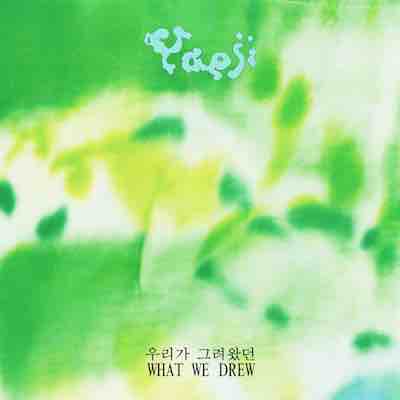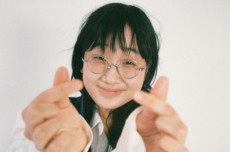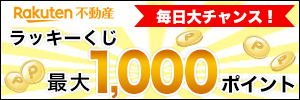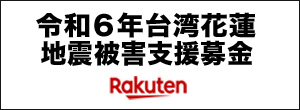「アーティストは、それぞれが何かしらの形で社会に影響を与えていると思うんです。自分の最も脆弱な部分を人々と共有しているから。意見を声に出すということを実際にはしなくても、自分を表現していますしね」Interview with Yaeji about “What We Drew 우리가 그려왔던”
NeoL / 2020年4月17日 17時0分
「アーティストは、それぞれが何かしらの形で社会に影響を与えていると思うんです。自分の最も脆弱な部分を人々と共有しているから。意見を声に出すということを実際にはしなくても、自分を表現していますしね」Interview with Yaeji about “What We Drew 우리가 그려왔던”
ソウルを経由し現在はNYに拠点を置くエレクトロニック・プロデューサー/DJ/ヴォーカリストのYaeji(イェジ)は、初のフィジカルリリースとなる最新ミックステープ『WHAT WE DREW 우리가 그려왔던』をXL Recordingsからリリース。Yaejiは『WHAT WE DREW 우리가 그려왔던 (私たちが描いてきたもの)』というタイトル自体がプロジェクト全体の精神を捉えているという。このプロジェクトは“友人、家族、感謝と支え”が主なテーマとなっており、「私が支えられたり、支えたり、そしてお互いを支え合うということ」を描いている。彼女の中で特定の物語はなく、各トラックは彼女の人生の一部を切り取ったものというのだ。マスタリング・エンジニアは、坂本龍一やスロウダイヴ、ディア・ハンター、バトルス、プリンセス・ノキアなどの作品も手掛けるヘバ・カドリーが務め、アルバムには彼女のニューヨークシティのコミュニティーなどに属している新鋭のアーティストたちがゲストとして集っている。東京のDJ/プロデューサー、ヨンヨンのほか、オークランド 出身ブルックリン在住のラッパー、ナッピー・ニーナや、ロンドンのパフォーマンスアーティスト、トロント出 身のアジア系ドラァグ・アーティストのヴィクトリア・シン、ロンドンのプロデューサー、シャイ・ワンなどだ。ヴィジュアルアートにも造詣が深いYaejiによるMVも必見で、となりのトトロの「さんぽ」のオープニング映像にインスパイアされたという“WHEN I GROW UP”のリリックビデオも公開されたばかり。ポジティヴな気持ちになれるこれらの楽曲とヴィジュアルアートをぜひチェックしてほしい。(→ in English)
――あなたはニューヨークで生まれ、その後いくつかの国で生活をしてきました。その当時の様子や気持ちはどのようなものでしたか?
Yaeji : 私はニューヨークのクイーンズで生まれて、最初の4年間そこに住んでいました。その頃のことはあまり覚えていないけれど、その後、アメリカ南部にあるジョージア州アトランタに家族と引っ越して郊外に住んで、そこの公立小学校に通っていたんだけど、それはあまり良い体験としては覚えていません。私は唯一の有色人種で唯一のアジア人だった。何年生だったか忘れたけど一時期、モンゴル人の女の子と、韓国人だったかな? 忘れちゃったけどもう一人アジア人の子がいたくらい。とにかく、そこでは韓国人なんて滅多に見ないし、人種差別が確かにありました。だから小学校低学年の頃はかなり苦労しましたね。
――ニューヨークとは全く違うでしょうね。
Yaeji : そう。それに90年代だったから時代も違っていて。その後、家族が韓国に帰国することになりました。仕事や家庭の理由というのがあったと思うけれど、私が家で韓国語を話さなくなってしまったということもあって、韓国の文化にもう少し触れさせたいと親が帰国を決めたのだと思います。韓国で小学校の高学年と中学、高校を過ごしました。でも私は転校をよくしていて、その間の期間も日本に1年間住んでいたんです。韓国ではアメリカンスクールにほぼ通っていて、日本では中学生の頃に東京韓国学校に通っていました。だから日本に住んでいた時に初めて韓国の教育を受けたんです。どこに住んでいても私の状況は少し変わっていて、目立っていたり、周りと合っていなかったりしていましたが、そこから学ぶことは常にありました。
――音楽の道に進むきっかけは?
Yaeji : 一番大きなきっかけは大学生の時に大学のラジオ局WRCTに入ったこと。それまでも音楽は好きだったけれど、ずっとヴィジュアルアートに専念していたから、音楽をメインでやっていくとは想像もしていなかったんです。でもラジオ局で番組の司会をやったり、DJをしたり、音楽を通して自分が心から共感できる人たちと友達になったりしたことによって、音楽が大好きになって。それは情熱的ですごい勢いで芽生えた感情で、その結果、今の私がいるというわけです。
――影響を受けたアーティストや愛聴してきた作品はなんでしょうか?
Yaeji : この世にはくさんの音楽があるから、こういう質問は難しいですね……。覚えている限り、私は今までずっとR&B、ヒップホップ、ソウル、ジャズが大好きで、多大な影響を受けてきました。中学か高校の時は韓国にいたから、アメリカの音楽やヨーロッパの音楽は、少し遅れたタイミングで入ってきていて。だからミッシー・エリオットやアッシャーを聴いていたんだけど、海外の人たちとは少しずれた時期に聴いていたと思います(笑)。それから、周りの人が誰も聴いていなかったようなボーン・サグズン・ハーモニーとか。理由は分からないけど、学校のみんなはあまりR&Bやヒップホップを聴いていませんでした。みんなは当時人気だったロックを聴いていたのかな。私は、R&Bやヒップホップが基盤で、そこからジャズ・エレクトロニカやボサノヴァ・エレクトロニカなどを聴くようになりました。日本でも流行っていましたよね。渋谷系にハマっていたし、韓国でもClazziquai Projectという人気グループがいて、ダンスミュージックみたいなんだけど、ボサノヴァの影響も受けていて、特徴的な歌い方をする女性ボーカルがいて。それにも影響を受けました。日本ではファンタスティック・プラスティック・マシーンとか、それに似た感じのアーティストたちも他に何人かいましたよね。高校ではそういう人たちの音楽を聴いていました。その後、大学でダンスミュージックを聴くようになったけれど、その前段階として、今言ったアーティストたちには直に影響を受けていたと思います。
――私があなたの存在を知ったのは、4年ほど前にDISCWOMANのサイトで公開されたDJミックスでした(http://www.discwoman.com/mixes/yaeji)。いまでもブルックリンのアンダーグラウンドシーンとは繋がりが強いと思いますが、シーンと繋がるまでの経緯を教えてください。
Yaeji : ニューヨークに移った後、私はかなりの頻度であらゆるクラブやイベントに出かけていて、7日のうち5日間は遊びに行ってました(笑)。土・日で3つ、4つのパーティに行ったりね。色々なDJを聴きに行ったり、音楽という共通のものを愛する様々な人たちに出会える場に行きたいという熱い想いがあったんです。大学時代に出会えた今でも仲の良い友達たちとは、音楽を通じて繋がったんです。私のことを理解してくれて、私が素の自分をさらけ出しても安心していられる友達たち。コミュニティと出会ったのはそういう繋がりからです。今ここにあるコミュニティはお互いのことを強く支え合っていて、DISCWOMANはもちろんその1つ。私がBossa Nova Civic ClubでDJする機会を初めてくれた人たちです。Bossa Nova Civic Clubは大きなクラブでもないんだけれど、私たちみんなにとってとても大切なクラブだったし、今でもそう。DISCWOMAN以外にも、多くの人たちが私がギグをできるようにサポートしてくれました。それから私はコミュニティに深く関わるようになりました。自分でもパーティを企画したりしてね。お互いがお互いを高めようとする、とても良い環境でした。
――『What We Drew 우리가 그려왔던』は、XL Recordingsからのリリースとしては初めての作品になります。あなたは『What We Drew 우리가 그려왔던』はミックステープだと言っていますよね。ボリューム的にはアルバムと言ってもいいと思うのですが、あくまでミックステープとする理由はなんでしょう?
Yaeji : このミックステープの作曲プロセスはとてもゆるくてオーガニックなものだったんです。「今回のプロジェクトではこれを伝えたい」とか「こういう物語を語りたい」という主張を持たずに、毎日スタジオに行って、その日に感じたことや、メモしていたこと、その週に私に起こった出来事などについて書いていました。比較的カジュアルでゆるい短編集みたいなものだったから、ミックステープと呼ぶ方が合っていると思ったんです。“Free Interlude”という曲では、音楽を遊びでやっている親友たちと一緒にフリースタイルしたりしていて、その素材も意図的にこの作品に入れました。そういうのもアルバムじゃなくて、ミックステープっぽいでしょう?(笑)その方が自由に作れると思ったんです。
――これまでの作品はハウス色が濃かったと思うのですが、本作はとても多彩な作品に仕上がっていて、よりポップ・ソングの形に近い曲が多いと感じました。この変化は意識したものですか?
Yaeji : 作曲をしているときは特にジャンルを意識していません。だから私のこれまでの作品はハウス色が濃くて、今回はポップに近いということに気づきませんでしたが、その意見もわかります。このミックステープにたどり着くまで、私は色々なプロダクションの技術を学びました。そのおかげでより多様な音にチャレンジすることができました。もっと冒険することができた一方で、音響的には良いものしようとしました。プロダクションに自信がついて、自分の声をより面白い響きになるように操作できるようになったし、自分の声に自信を持つことができたんです。だから今回はより実験的なサウンドに仕上げることができたのかもしれません。
――本作にはナッピー・ニーナ、ヴィクトリア・シン、シャイ・ワンなど多くのゲストを迎えています。これらのアーティストとはどのように出逢ったのでしょうか?
Yaeji : “Money Can’t Buy”に参加してくれたナッピー・ニーナとは幸運な出会いをしたんです。“Money Can’t Buy”の作曲が終わって、最終的なミックスの仕上げを友人のミキシングエンジニアと一緒にしているときに、この曲に女性ラッパーを入れたいけれど結局誰も思いつかなかったという話をしていて。そしたらその友人がナッピー・ニーナのことを教えてくれて、私と彼女には共通の友達がたくさんいることがわかって。彼女はその日の数時間後にスタジオに来てくれて、バースを完璧に録音して、楽しい時間を共に過ごすことができました。今でもよく連絡を取り合っていますよ。運命的な出会いの一例ですね(笑)。ヨンヨンは学生の頃から知っていて、日本での同級生でした。彼女は昔から音楽の道に進みたいと言っていて、今も活躍しています。彼女がDJを始めた頃、私もアメリカでDJを始めた時期で、再び積極的に連絡を取るようになったんです。彼女にはいつかゲストで参加してもらおうとずっと思っていて、今回の曲で彼女にぴったりの曲ができたから参加してもらいました。ヴィクトリア・シンとシャイ・ワンはパートナー同士でロンドンに住んでいます。ミックステープの制作を始めた2年前の夏、私がロンドンのサーペンタイン・ギャラリーで個展をやった時にヴィクトリアと知り合いになりました。彼女たちもサーペンタインでパフォーマンスをやっていて、お互いがお互いの作品のファンだったから、その後も連絡を取り合って仲良くなりました。今回ゲストで参加してもらった人たちは、昔からの友達か、結果として友達になったという人たちばかりですね。
――『What We Drew 우리가 그려왔던』では、あなたが聴いていた韓国のインディー・ロックや、1990年代後半から2000年代初期のヒップホップとR&Bを取りいれたそうですね。具体的にどういったアーティストからインスピレーションを受けたんでしょうか。
Yaeji : そういう音楽が作曲中の私のサウンドトラックになっていましたが、どの程度の影響があったのかは分からないです。でもソランジュはよく聴いていました。今作の終盤くらいにソランジュの公演を初めて観る機会があって、衝撃を受けました。あとは、両親が薦めてくれた80年代の韓国の音楽を聴いていました。「春夏秋冬」という昔の韓国のバンドがいて、父親が大好きなんです。私が聴いていたのはこれだけではないけれど、私が再発見しようとしていたのはこの時代の音楽ですね。最近の音楽でよく聴いていたのは、ムーディーマン。でも彼の音楽はとても良いハウスミュージックだから以前から聴いていますね。
――本作の歌を聴き、これまでの作品よりもリラックスしていて、オープンな印象を受けました。以前よりも自分を出すことに積極的になったなどの変化があったんでしょうか。
Yaeji : それは確かにありました。その一因として自分について多くのことを学んだというのがあると思います。自分についての学びは毎日あるんだけど、特にこの2年間は私のキャリアにおいてめまぐるしい変化があって。その過程を経験したことで自分について多くを学べたんです。癒されたし、素の自分に対して自信がついたというか、心地良くいられるようになりました。それから、ある特定の音楽を作らないといけないというプレッシャーをあまり感じなくなったというのもあります。なぜかはわからないけどそのプレッシャーからは完全に解放されました。周りの環境がとても協力的で愛情に満ちているからだと思います。だから何を作ってもいいんだという気持ちが、リラックスした感じや、心地よさや遊び心として音楽に出ているんじゃないでしょうか。
――すべての収録曲がお気に入りですが、“Money Can't Buy”には特にハマっています。この曲のヘヴィーなシンセ・ベースにはアシッド・ハウスの香りがありますが、アシッド・ハウスは好きなんでしょうか?
Yaeji : アシッドのベースラインはとても好き。ベースが全般的に、ものすごく大好きなんです。ベースが一番好きな音だし、ベースのパートを書くのが一番楽しいと感じる時が多いです。だから、そういうコメントをしてくれるのは嬉しいです。
――“Waking Up Down”のMVを初めて観たとき、思わず笑みを浮かべてしまいました。80年代エレクトロ的なトラックをバックに、『クッキングパパ』あたりを連想させる日本の90年代アニメ風の映像が流れるからです。このMVのアイディアはどこから生まれたんですか?
Yaeji : 両親が仕事で忙しかったから私は子供の頃から日本のアニメをたくさん観てきました。その影響は確かにあります。初めて観たのはセーラームーン。すごくハマっていました。私や私の友達が今でもよく観るアニメは実験的なものからポピュラーなものまで色々あって、20年以上もアニメを観続けてきたということに改めて気づきました(笑)。私はヴィジュアル・アートが好きだから、日本のアニメの作風での短編アニメーションの作り方に以前から興味があったんです。だから絵コンテを作って、MVのキャラクターになるようなキャラたちを描き始めた。“Waking Up Down”でそのアニメを作ったら一番面白いんじゃないかと思って制作することにした。アニメのオープニングみたいにしたら良いと考えていて、ラッキーなことに、私のルームメイトはプロのアニメーターだからビデオの制作を手伝ってくれて一緒に完成させてくれました。協力してくれた人たちがアニメについて詳しかったことはとても助かりました。アニメのビデオにして、ユーモアがあって、見た人がポジティブな気持ちになるようなものにしたいという考えがありました。
――最後に、チャリティー・コンピの『Physically Sick』に曲を提供するなど、あなたには確固たる信念や理想があるように感じます。それを育むうえで重要だった人や出来事を教えてください。
Yaeji : 説明するのは難しいけれど、アーティストは、それぞれが何かしらの形で社会に影響を与えていると思うんです。自分の最も脆弱な部分を人々と共有しているから。意見を声に出すということを実際にはしなくても、自分を表現していますしね。その共有の仕方はアーティストによって違うし、それを受けた人がどう活用するのかも人によって違う。私は、自分のプラットフォームが大きくなったことに心から感謝しています。私の音楽やメッセージを聴いてくれる人たちがいることは本当に恵まれていますよね。そういう状況にいて、私は、自分が大切に思っていることを主張していく必要があると気づきました。この素晴らしいプラットフォームを与えられたのだから、それを活用して、他の主張がある人たちが主張できるように手助けをしようと思ったんです。この考え方は、自分が育った環境によるものかもしれないけど、自分にとっては当たり前のことでした。最近、自分をさらにその方向性へとプッシュしたきっかけはMIAのドキュメンタリーでした。全ての人に観てほしい。音楽だけじゃなくて政治的な内容も含まれているんです。ドキュメンタリーの中でMIAは「ミュージシャンならなぜ主張しない?なぜ主張するために音楽を作らない?」と言っています。本当にその通りですよね。

Yaeji
『WHAT WE DREW 우리가 그려왔던』
(XL Recordings / Beat Records)
NOW ON SALE
国内盤CD ¥2,200+税
国内盤特典:歌詞対訳・解説/ボーナストラック追加収録
BEATINK.COM
https://www.beatink.com/products/detail.php?product_id=10918
AMAZON: https://www.amazon.co.jp/dp/B08566V61G
Apple Music: https://apple.co/2IE3LrA
Spofity: https://spoti.fi/2IAurtc
TRACKLISTING
01. MY IMAGINATION 상상
02. WHAT WE DREW 우리가 그려왔던
03. IN PLACE 그 자리 그대로
04. WHEN I GROW UP
05. MONEY CAN'T BUY (ft. Nappy Nina)
06. FREE INTERLUDE (ft. Lil Fayo, trenchcoat, Sweet Pea)
07. SPELL 주문 (ft. YonYon, G.L.A.M.)
08. WAKING UP DOWN
09. IN THE MIRROR 거울
10. THE TH1NG (ft. Victoria Sin, Shy One)
11. THESE DAYS 요즘
12. NEVER SETTLING DOWN
13. When In Summer, I Forget About The Winter *Bonus Track for Japan and South Korea

ーーYou are born in New York, and have lived in a few different countries. Can you tell us what it was like for you living in those places and how you felt?
Yaeji : I was born in Queens, NY and lived here for about 4 years. My first 4 years, I didn’t retain much memory then, but shortly after we moved to Atlanta GA, which is further down south in America and we lived in the suburbs and [I] went to a public school so that was a very jarring experience for me, being the first social interaction I’ve had going to elementary school. I remember I was the only person of color or the only Asian for a few years. Other than…there was a girl who was Mongolian and I think there was a girl who was Korean…I can’t remember but it was just really rare. So people didn’t really know of Korea and there was definitely racism, so…it was a really difficult school experience.
ーーOh yeah, coming from NY it must be really different.
Yaeji : Yeah, NY is very different. And it was back in the 90s as well so it was a different time. After that, my parents decided to move back to Korea. I think part of it had to do with their work and their business and family, but it also had to do with me not speaking Korean anymore at home, so culturally they wanted me to feel a bit more balanced because they come from Korean cultures. So then we moved to Korea and I spent most of my…the rest of my elementary, middle, and high school there, but I would transfer schools a lot. In between, I lived in Japan for a year which was in middle school. And I went to Tokyo Korean School. It was interesting because in Korea, I went to American School for most of the time, and in Japan, I went to Korean School. That was the first time that I actually received Korean education, but I was living in Japan. So wherever I grew up, I feel like I grew up in interesting circumstances where I stood out or didn't fit in, but always learning something really new.
ーーWhat was the trigger that made you decide to do music as a career?
Yaeji : I think the biggest one was definitely in college when I joined the radio, WRCT. Prior to that, I obviously enjoyed music but never thought that it would be my focus in life because I was extremely into visual art my entire life. So the radio, hosting a show there, and learning how to DJ, and meeting friends that I can really relate to, but mostly through music, made me completely fall in love with music. And it was very quick and very passionate. So that’s what brought me to today.
ーーCan you tell us some artists who were your big influences or the kind of music/albums that you loved listening to?
Yaeji : Growing up or recently?
ーーIt doesn’t say, so it can be any time period.
Yaeji : That’s always a tricky question for me because there’s so much music out there. And I feel like we also listen to so much more and more, just because of how things are with streaming and what not. So it’s a very grand question. If I had to choose, I was really interested, for most of my life as I can remember, R&B, hip hop, soul, jazz…all of that I’ve always loved. And it’s true to this day and definitely has a huge influence on me. And I remember in middle or high school, because I was in Korea, American music and European music was coming in a different period, maybe a bit delayed, so I was listening to Missy Elliot and Usher and things like that on a slightly different timeline from everyone else. But also things like no one else was listening to, like Bone Thugs-N-Harmony…For some reason no one in my school was listening to hip hop and R&B like that. They were more into the popular music which I guess was rock at that time. So that’s been one consistent thing. From that, I think it branched off into jazz electronica as well as Bossa Nova electronica which I know in Japan was a huge thing. I was obsessed with Shibuya-kei and all of their genres. I think for Korea, we had an artist called Clazziquai Project which was quite big at that time. It’s almost like dance music but infused with Bossa Nova influences and a lot of female vocalists that sing in a specific way. I think that also really stuck with me. And then I remember in Japan, there was Fantastic Plastic Machine, and a few others that sounded similar…So that was my life in high school. I was really into that in middle and high school. In terms of dance music precursors, that definitely had a direct influence on me in college later on.
ーーI first heard you about 4 years ago on a DJ mix which was up on the DISCWOMAN’s website.(http://www.discwoman.com/mixes/yaeji). You probably still have strong ties to Brooklyn’s underground scene; can you tell me how you first got connected to the scene?
Yaeji : I first got connected because I was going out a lot to all the shows, all the clubs when I first moved here. I jokingly say that, which isn't even a lie…I think it’s true, that I went out like 5 times out of the 7 days (laughs) and sometimes on Saturday and Sunday, I’ll be going to 3 or 4 parties. I was just so passionate and eager to see different DJs, to meet different people that all loved the same thing. Because in college, that was what connected me to friends that I love and care about until this day. My friends that can actually understand me and make me feel comfortable being who I am. So I think that’s how I met the community and everyone was so supportive. The community we have here is so supportive and DISCWOMAN is obviously one of them. They were one of the first people to give me opportunities to play at Bossa Nova Civic Club, which is one of the…I wouldn’t say it's a big club, but it was a very important club for all of us, and it still is. And it’s just various people helped me to play more gigs out and I was deeply a part of it from then on. I threw a lot of parties myself as well, and it was always a great sharing experience because everyone is always trying to uplift each other.
ーーAs an artist based in Brooklyn, what do you think of the local music scene right now? I personally think the situation changed drastically over the past few years with venues like Palisades closing.
Yaeji : Yeah this is true. Basically we repealed the cabaret law, which was a law saying that you can’t dance. I believe Japan had a similar thing too, right?
ーーYes we have something very similar.
Yaeji : So once that changed, I think it was good for many, but difficult for many in that…as well as there was an event in California where warehouse space that threw a rave had burnt down a few years back…so all of these things I think contributed in the change of the New York venue spaces and what that looks like. I think the cops were definitely way more stricter about checking whether clubs were up to par with regulations, and I think it was becoming more difficult to throw DIY parties at warehouse spaces and illegal spaces. And that obviously changed the landscape of clubbing. So what happened then is a lot of new venues started opening up. And I don't think I even know all of the venues that are in Brooklyn anymore because there’s a lot more, and during the same time period, I started going out less just because I got older and got more tired (laughs) and enjoyed staying home more. So I think it’s hard for me to know exactly on the ground what’s happening in Brooklyn now, and also because of the virus, you know. But definitely, a lot has changed and it feels like the spaces available are less DIY.
ーーYour lyrics come across as abstract yet personal. Are there any artists or poets that you’re influenced by in terms of writing lyrics?
Yaeji : I definitely don’t read enough poetry (laughs), so…it’s hard to say that it’s from poets.
ーーAny musicians or artists?
Yaeji : I would say that with lyrics, I’ve never turned to anything or anyone for it. It really comes from me, so it’s hard to give examples. Because, I’m sure there are some things that have influenced me at some point.
ーーIt seems like you hold strong beliefs and ideologies as you’ve provided music for the charity compilation “Physically Sick.” Can you tell us some people or events who were important in helping you become the person you are now.
Yaeji : I feel like every artist is making a difference in one way or another. It’s like sharing the most vulnerable part of yourself, and it is like speaking up without speaking up. And I think people just share it differently and use it differently. For me, because my platform has grown bigger, I’m so grateful and lucky that I actually have these people that listen to me now and listen to what I have to say. And that made me realize even more that I have to act and voice the things that I care about because I am given this wonderful platform. And I should also use this platform to help other people who have something they need to say, say it. For me, maybe it’s just my upbringing, I always thought of that as a no-brainer. But I will say something that pushed me even harder in that direction recently was watching the MIA documentary. I highly recommend it to anybody because it’s truly more than just music. It’s very political as well and I think Maya mentions in that documentary that “If you’re a musician, why wouldn't you make a statement?” Like, why aren’t you making music to make a statement? There’s a lot of truth to that, so that definitely pushed me further in that direction as well.
ーー“What We Drew 우리가 그려왔던” is your first release from XL Recordings. Can you tell me how you ended up signing with XL Recordings?
Yaeji: I finished my mixtape and definitely felt like I wanted more support in my family. My family, because we were independent for a long time. It was my two managers, my creative director, my stylist, and a few others that are all my close friends. But we were doing a lot. A lot every single day, stretching ourselves really thin and all saw the value in teaming up with another family that feels really right, like home to us. To help develop these ideas we have further by getting an extra lift. Also personally for me, there are so many artists that I respect that have come out of XL and released on XL. And I had met [the people from XL] a few different times and visited their office in London, and they have always been so sweet and generous with us. So I think ultimately, it just felt like the right fit.
ーーYou call “What We Drew 우리가 그려왔던” a mixtape. It can be called as an album in terms of the length and volume, but can you tell us why you decided to call this a mixtape?
Yaeji : The main reason was that the process in writing this mixtape felt very loose and organic to me. I didn’t start it by stating, “This is what I’m trying to say with this project” or “This is the story I’m going to tell.” It was more of me just going into the studio every day and writing a song about how I felt that day or any note I had about that week or any events that had happened to me. So it’s a stream of short stories, different short stories. In that way, it felt more casual and loose, and fit for a mixtape. There are some tracks in there like “Free Interlude” that are tracks I wrote while freestyling with some of my friends that don’t even do music professionally. They’re just my best friends and I decided to put that in there intentionally, but that made it feel more like a mixtape than without them. It’s more freeing that way, I think.
ーーI think the music that you’ve released before this mixtape sounded more inclined towards house music, but this mixtape showcases many different kinds of music, and I thought that many of songs here sounded closer to pop songs. Was this something that you wanted to change up intentionally?
Yaeji : For me when I’m writing, I never specifically think about genres. Genres are great in that it makes it easier for us to communicate what we’re talking about when we can’t hear it, but when I’m making, I don’t think about it so…I was unaware that my previous works sounded more house and that this sounds more pop, but I can see what that means. Based on that, I would say that I learned way more about production along the way here, to get to this mixtape and that allowed for me to try out more diverse sounds, to be a bit more adventurous, but make it work sonically. It’s just that my comfort level with production is becoming stronger and I have found more ways to manipulate my voice in a way that it sounds more interesting or comfortable. I think that’s how I achieved the experimental sound, maybe.
ーーThis mixtape features many guests such as Nappy Nina, Victoria Sin, and Shy One. Can you tell us how you met with these artists?
Yaeji : Nappy Nina for the track “Money Can’t Buy” was really serendipitous. I was putting the final finishing touches because I finished writing it in the mixing studio with my friend who is a mixing engineer. And I had mentioned how I wanted a feature here and I wanted it to be a female rapper, but I just couldn’t think of anyone in the end. And he mentioned Nappy Nina. And it turned out that we had a bunch of mutual friends. So she was available to come into the studio that day, like in a few hours, so she came in, recorded the verse really fast, it was perfect, and we really enjoyed each other’s company, and kept in touch and are still in touch as friends. So that’s an example of fate kind of put us together (laughs). But with Yon Yon especially, I’ve known her since middle school when I went to school in Japan. She is someone who, as long as I’ve known her, always wanted to do music. And is doing great. And when she started DJing, I also was starting to DJ myself but in America and I think we recognized that and started talking to each other more actively again. And I had her on my mind as a feature for a long time, and finally found the song that could work perfectly. So that one is almost the opposite of Nappy Nina where I just knew that I wanted to work with her. And Victoria Sin and Shy One are partners and they live in London. I met them because I did an art show at Serpentine Gallery in London two summers ago which is when I started writing for my mixtape. That’s when I met Vic because they were also doing a performance at Serpentine and we were each other’s fans and kept in touch and became friends. Somehow one way or another, all of us ended up becoming close friends. Either already were or became [close friends].
ーーI read that you incorporated indie rock music from Korea, as well as hip hop and R&B from the late 1990s to early 2000s which you were listening to growing up. Can you tell us specifically what kind of artists you were inspired by?
Yaeji : All of it is not going to be specific because it’s more so that these people were soundtrack-ing my life personally while I was writing. So I don’t know how much influence it literally had. But I was listening to a lot of Solange and I got to see her live for the first time towards the tail end of the mixtape and was absolutely blown away. I’ve listened to a lot of old, older Korean music my parents recommended for me, maybe even from the 80s. A lot of older…I guess it’s actually a range but if it helps to give names, there is this artist/band that’s called “Bom Yeoreum Gaeul Kyeoul” which is translated into “Spring Summer Fall Winter.” This old Korean band is one of my dad’s favorites. That’s not the only band but that’s similar to the era of music I tried to rediscover. I’m trying to think of what else I’ve been listening to. I’ve been listening to…no, but that’s more recent. I have trouble remembering things.
ーーIt’s OK, it’s hard to remember all of the things that you’ve been listening to.
Yaeji : That’s true. Oh, I listened to a lot of Moodymann but I always do because he’s good house music. Is that OK?
ーーYes that’s good. Thank you.Listening to the songs on “What We Drew 우리가 그려왔던” I got the impression that you were more relaxed and open compared to your previous works. Did you go through any changes, like you became more comfortable or open to showing yourself more?
Yaeji : That’s definitely true. One part of it was I feel more comfortable with myself because I learned so much about myself, which I learn every day but in particular the past two years, because I had to go through so many changes, with my career I guess, but also with everything that it just helped me learn a lot. And through that process, I healed a lot. And just feel more comfortable being myself. The other part of it is that I feel less pressured to have to make specific or certain type of music. I don't know what happened but I feel completely liberated from that. It’s probably because my environment is so positive and loving and supportive that I feel free to make whatever I want, and I think that shows in the music. Just the relaxed, comfortable, playful side of me.
ーーI like all of the songs on this mixtape, but I especially like “Money Can't Buy.” I get an acid house vibe from this song’s heavy synth bassline. Do you like acid house?
Yaeji : I enjoy acid bassline a lot but more so in general, I really love bass. Bass is my favorite thing, bass is my favorite thing to write a lot of the times, so to me that’s a very sweet compliment.
ーーI couldn’t help but smile when I saw the music video for “Waking Up Down” for the first time. Because it’s got this 80s electro-like track in the background, with a 90s Japan animation-like visuals that reminded me of the animation series “Cooking Papa.” Where did you get the idea for this video?
Yaeji : It definitely was influenced a lot by Japanese anime which I grew up watching ever since I was little because my parents were working a lot. The first show I watched was “Sailor Moon” and I was obsessed. But from then on, my love for anime as well as of my friends around me is still consistent to this day. We watch a lot of really weird experimental ones all the way to really popular ones. I just realized that I’ve learned so much about it through 2 decades! 2+ decades of watching anime (laughs)! Because I’m so into visual art, I’ve always been curious about the process of making an animated short that basically is in the style of anime. So I created a storyboard and started ideating some characters for a potential music video. And we all agreed that “Waking Up Down” would be the most fun for that. I was like “OK, maybe I can make it like the intro to an anime.” And from there, luckily my roommate is a professional animator so she helped me finish it and direct it. It just helps that everyone already knows so much about it. So that was definitely our goal, to be influenced by anime and make it a bit humorous and positive for everyone who’s watching.
関連記事のまとめはこちら
https://www.neol.jp/music-2/
この記事に関連するニュース
-
【動画】追加支援でウクライナ軍が受け取るストームシャドウ、ハスキー、ATACMSの実力
ニューズウィーク日本版 / 2024年4月24日 16時4分
-
生産間接材購買プロセスDX革新「D-JIT(ディージット)」 をサービスイン<English Follows>
PR TIMES / 2024年4月15日 13時15分
-
【東京グレートベアーズ】ラファエル・アラウージョ選手 退団のお知らせ
PR TIMES / 2024年4月11日 18時40分
-
TOWER OF POWER『Way Back To Oakland : Best of Warner Years & More』5/15タワレコ限定販売!
PR TIMES / 2024年4月10日 15時45分
-
日本ゼオン、偽造防止にもなる新素材を取り入れたアート作品を世界初披露
PR TIMES / 2024年4月4日 9時45分
ランキング
-
1映画「もののけ姫」の映えスポットで撮影した女性の投稿に大反響! 「言われなくても生きそう」「無敵感がすごい」
よろず~ニュース / 2024年5月2日 15時0分
-
2iPhoneに「侵害されたパスワード」という通知が来ました。パスワードが漏洩してしまったのでしょうか?
オールアバウト / 2024年5月2日 21時25分
-
3制服と体操服でやりがちなNG洗濯! 体操服を洗濯する時、ファスナーは閉める? 開ける?
オールアバウト / 2024年5月2日 21時15分
-
4枯れたミントを畑に捨てたら…3年後に「地獄絵図」、 繁殖力に地主も後悔「土の総入れ替えしかない」
まいどなニュース / 2024年5月3日 7時10分
-
5固形コンソメを簡単に「粉状」にする方法 味の素公式が教える裏ワザが目からウロコ
Sirabee / 2024年4月30日 5時0分
記事ミッション中・・・
記事にリアクションする
![]()
記事ミッション中・・・
記事にリアクションする

エラーが発生しました
ページを再読み込みして
ください










